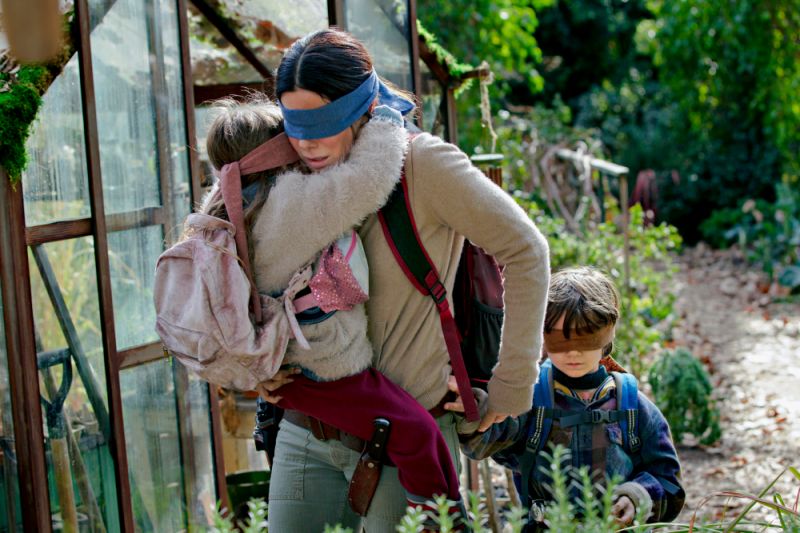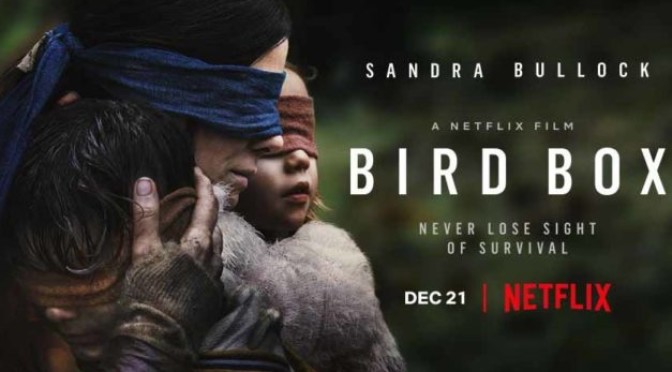Bird Box is told in two timelines. The first follows Malorie (Sandra Bullock; Gravity) as she prepares two blindfolded children, named Boy and Girl, to travel to a community downriver. The second tells Malorie’s backstory and fills in why the world appears to be in a post-apocalyptic state. On the way home with her sister following a prenatal checkup, Malorie realizes that something is very wrong. People are suddenly acting suicidal and jumping off buildings or running into busy streets. As chaos ensues, she finds refuge in a stranger’s house along with other stranded individuals and discovers that some unknown, unearthly entities are creating the havoc by controlling anyone who makes visual contact with them. From that point on, Malorie and company cover all windows and only step outside with blindfolds to protect themselves from contracting whatever frenzy is tearing their world apart.
Within Malorie’s journey is a blunt subplot about her personal growth. Her pregnancy is unwanted and unplanned and she repeatedly states that she is not mother material and has no desire to be. The writers intend the pregnancy and eventual raising of the children to allow for her to realize her parental instincts and see herself as more than she had previously believed possible, but the acting and writing is so heavy-handed that she appears to only have two phases of growth, being completely against the idea of being a mother and wholly embracing motherhood, with neither being believable and without a smooth transition between the two states. Her treatment of the boy and girl seems less like someone unsure of their ability to raise children and more like someone just annoyed that they have an additional responsibility. When she does finally accept them, Bullock acts with unconvincing, forced emotions and delivers the most predictable, corny dialogue. Her growth into motherhood is a flawed, failed attempt at character development that doesn’t engender the desired sympathy.

Bird Box is the amalgamation of A Quiet Place and The Happening that no one wanted. The conceit of needing to cover your eyes to avoid infection could have been an interesting premise but the film does little to exploit the potential. Furthermore, limited sight does not allow for the tense situations that avoiding sound does. There is minimal risk to accidentally alerting the creatures because a simple blindfold negates their power whereas in A Quiet Place even a small false move could create a noise loud enough to lead to death. This danger infused tension into every movement, but in Bird Box their situation is almost entirely within their own control and the creatures don’t directly harm the characters so the narrative doesn’t provide enough reason to be afraid of the unexplained beings. The main consequence, that characters enter a suicidal rage, isn’t as laughably bad as in The Happening but the visuals of people ending their own lives still fail to produce a lasting emotional response. Bird Box is an unnecessary, weak twist on existing horror ideas that doesn’t understand what made them successful or learn from their mistakes.

2/5 stars.
